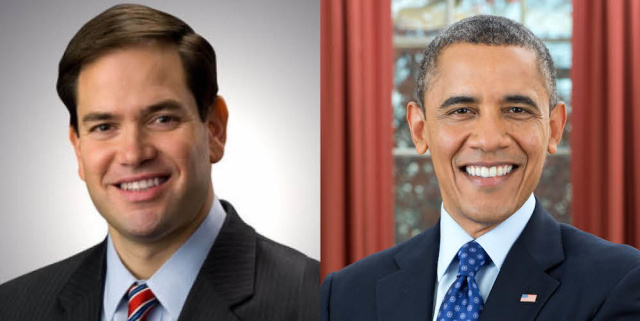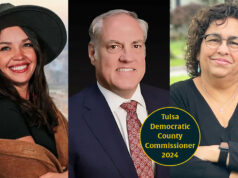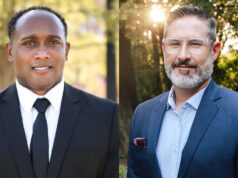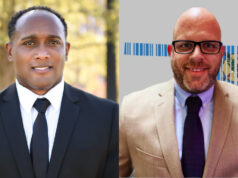
What gets a president to the Oval Office isn’t the same thing that would get the country where we need to go: a sane and functional system of governing.
Magnetism. Charisma. The “it” factor. These attributes have always played important determinants in political races, whether it involves shaking someone’s hand at a parade or giving a soaring speech in front of hundreds.
Follow NonDoc:
With the modern presidential campaign — driven by continuous, far-reaching media exposure and narratives — candidate charisma plays an even more crucial factor than perhaps ever before. But it’s the interpersonal charisma, or likability, that remains important for the officeholder to exhibit if we are going to ever crawl our way out of Washington’s partisan toxic wasteland and toward a halfway respectable functioning government system.
Look at America’s last three presidents. As candidates, each had charismatic appeal to the electorates at the time. Bill Clinton offered an emotional intelligence to voters in the midst of difficult economic times in 1992.
Contrast how Clinton appears to understand people’s pain with George H.W. Bush’s patrician-like disconnect, and it makes sense that the Arkansas governor enthused swing voters more effectively and sent Bush to retirement in Houston after one term.
The dynamic was flipped in 2000 with George W. Bush’s folksy Texan swagger contrasting Al Gore’s wonky and annoyed “professor as president” approach.
The economy wasn’t an issue in 2000, which normally takes the pressure off the incumbent party. But Gore’s inability to spark enthusiasm with the base, the Ralph Nader siphon effect on the far left and Bush’s charismatic media appeal were enough to propel the GOP to the Florida recount controversy.
In 2008, political charisma was most at play within the Democratic primary, where President Barack Obama’s media-image superiority — and the spark it gave to new voters — overcame the Hillary Clinton political machine. Economic anxiety and heartburn with the incumbent GOP meant any Democratic nominee would have likely bested an unlucky John McCain moderate-maverick candidacy. But you get the point — charisma matters in campaigns.
It’s a different sort of charisma, however, that is necessary and urgently needed for the 2016 winning presidential candidate to have a shot of having history look kindly on his or her actual presidency. Call it charisma or strong interpersonal skills, an ability to get along is at the core of convincing congressional opposition to come along quietly. Getting along begins the baby steps we need to take to move away from the verge of default and government shutdown every summer.
Although Bill Clinton engaged in frequent partisan bickering and endured impeachment proceedings, he still managed to invite then-Sen. Trent Lott (R-Mississippi) over for late-night whiskeys every now and then.
Clinton maintained personal connections with GOP leaders and made it damn hard to dislike him personally. These soft skills matter when trying eek out bi-partisan compromises wherein an opposition party leader is going to receive tremendous blowback from the fringe of his caucus.
George W. Bush also was able to form somewhat workable relationships with Democratic congressional leaders, despite public comments like then-House Speaker Nancy Pelosi (D-California) calling him a “total failure” and then-Senate majority leader Harry Reid (D-Nevada) calling him “a loser.” It should be noted, though, that the ability to engage in public fights while privately working together was much harder during Bush II’s years than the Clinton-GOP years. We have seen a foreboding trend vector, which brings us to our current president and the GOP-controlled Congress.
Barack Obama hasn’t been able to match his outward charisma on the stump with a penchant for deal making and thick-skinned relationship building like his two predecessors exhibited. He has had every reason to avoid this route given the remarkable disrespect he and the office of the presidency have been shown since 2008. It was understandable for Obama to bypass trying to be buddy-buddy with the GOP given events like Joe Wilson’s remarkably inappropriate and desperate “you lie” scream or Senate majority leader Mitch McConnell (R-Kentucky) saying his top priority was to “deny President Obama a second term.” Nevertheless, Obama appeared either to not value the behind-closed-doors relationship repair game or just not be very good at it.
But what America needs most in this ugly partisan environment are political leaders who don’t give in to justified reasons for closing partisan ranks. We need someone who, instead, will literally “get into” trying to crack the nut of working privately with political opponents who publicly treat him or her like garbage.
Sen. Marco Rubio (R-Florida) has the charisma advantage over the rest of the GOP field, and the Democratic field as well. It may well deliver him to the White House over Hillary Clinton. But what we would need from him once he’s there — or from whoever gets there — will not be the same thing that got him there.
We don’t need the hero-to-the-base, tell-Americans-what-they-want-to-hear shtick once a president has taken the oath of office in front of the U.S. Capitol. All of that is needed to win, but Americans need the winner to leave it on stage in an early November victory speech.
What we need for our country to function is a privately likable, self-assured leader who can let what the opposition party leader says on Meet the Press roll off his or her back. We need someone who can get excited about finding a way to accomplish things while the political fringes assume all politicians can’t stand each other. Maybe they indeed can’t stand each other, but good statesmen move past that and don’t let it get in the way of running the country.
I think I’m probably not alone in saying that party-loyal but reasonable Americans are done with what partisan politicians have been doing.
It isn’t working.
(Bonus video: Click here to watch Bill Clinton discuss the importance of retaining working relationships with political peers on the opposite end of the spectrum.)





















